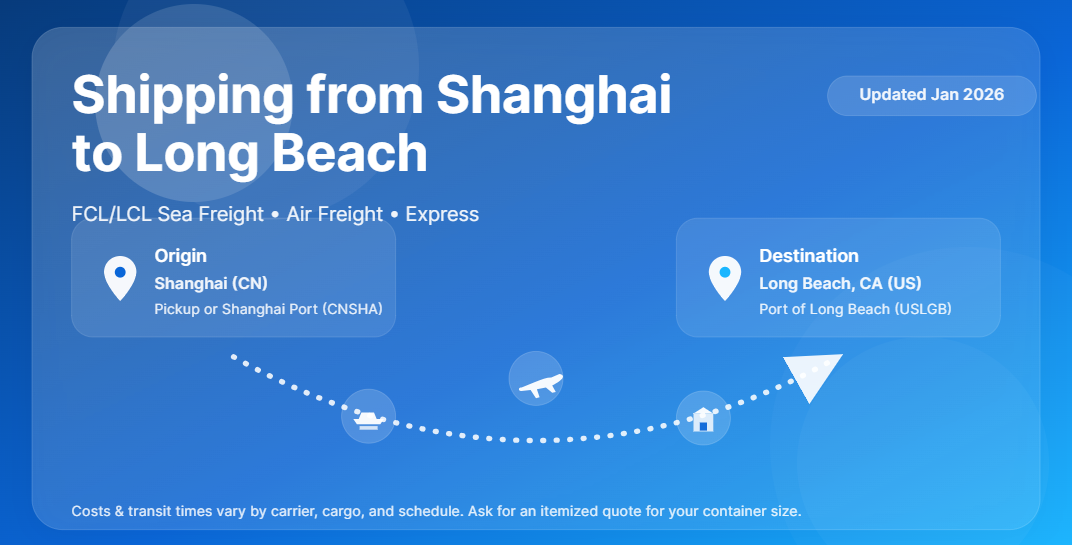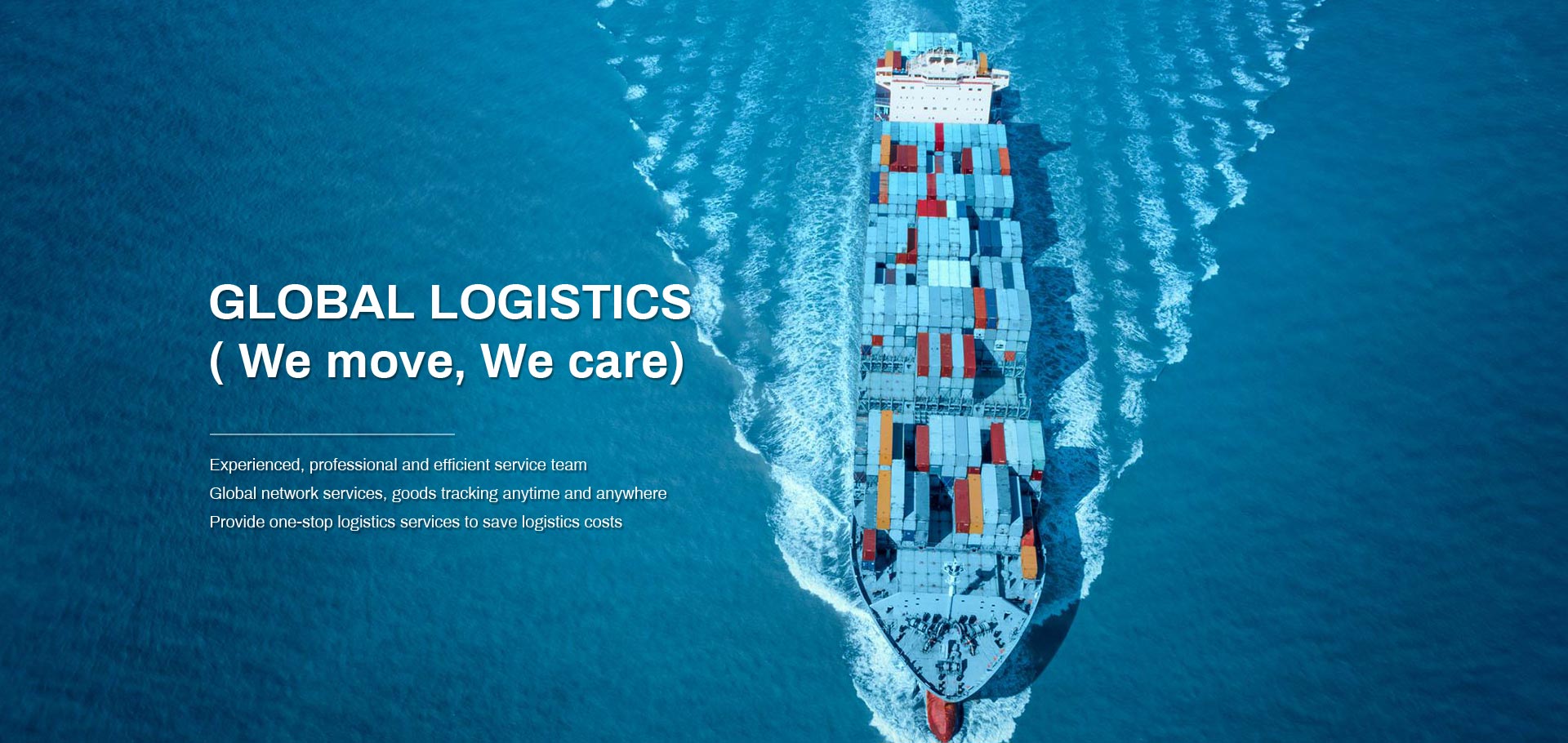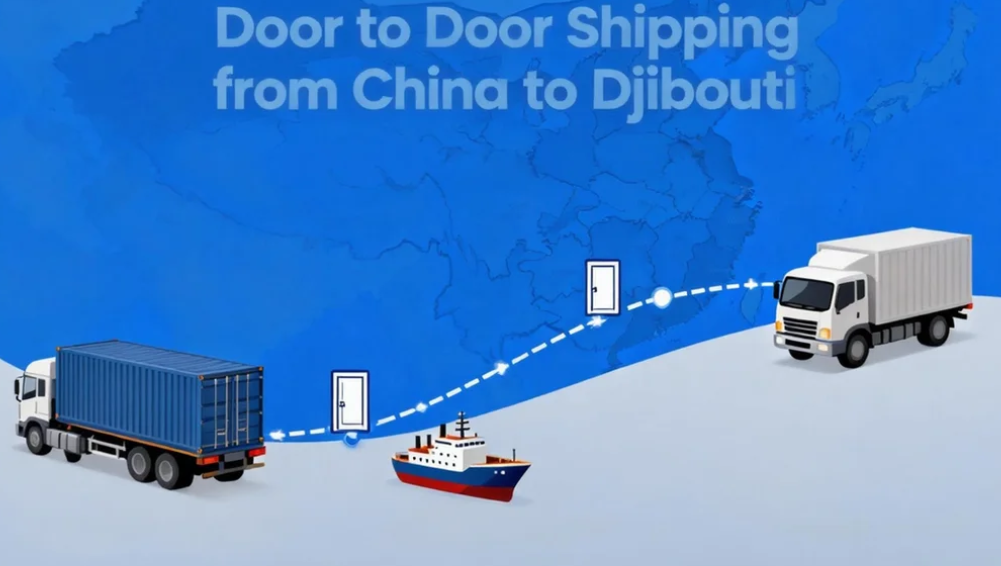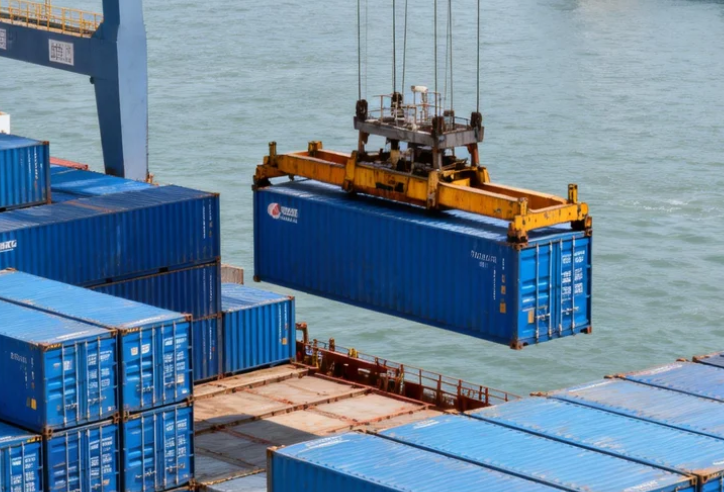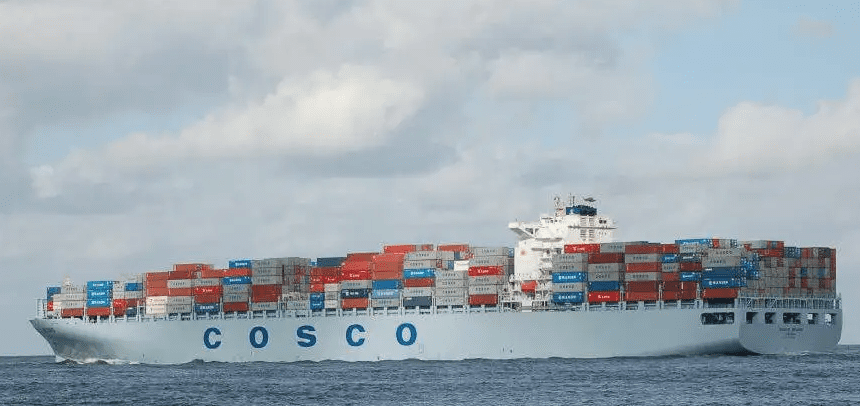Are you looking to ship goods from Guangzhou to Toronto, Canada efficiently and cost-effectively?Shipping across continents can be complex, but understanding the process is essential for success.
In this comprehensive guide, we will explore the various shipping methods, costs, and customs processes involved in shipping from Guangzhou to Toronto. Additionally, you’ll discover best practices to streamline your operations and save on expenses. Get ready to navigate the world of international shipping with confidence!
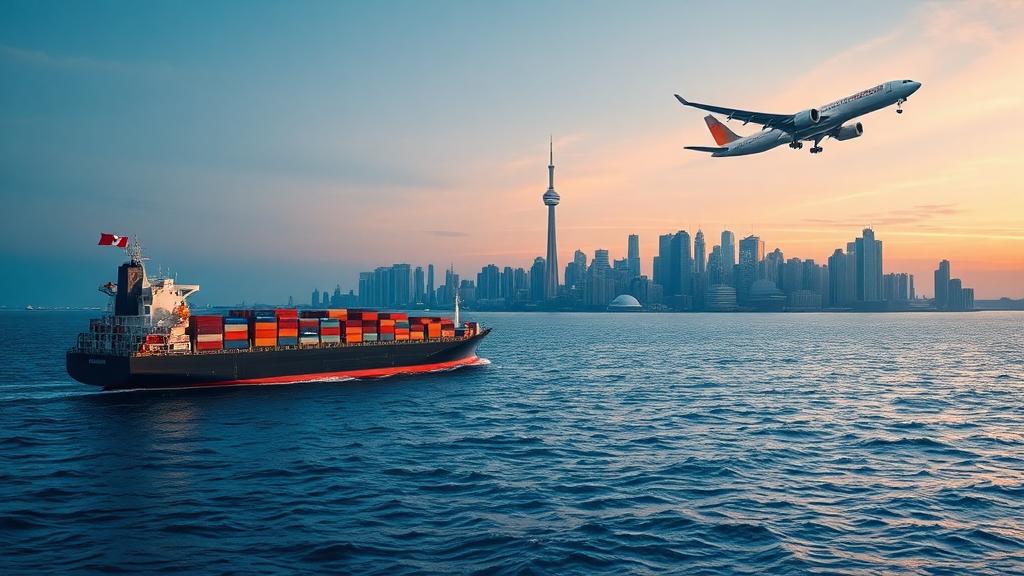
Essential Guide to Shipping Goods from Guangzhou to Toronto
Understanding the Importance of Effective Shipping Solutions
Effective shipping solutions play a critical role in the global trade ecosystem, particularly for businesses importing goods from Guangzhou to Toronto, Canada. A well-structured shipping strategy not only minimizes costs but also enhances delivery timelines and ensures compliance with international trade regulations. In today’s competitive market, choosing the right shipping method and partner can significantly impact the overall success of an import operation.
Shipping from Guangzhou to Toronto involves navigating various logistics, including transportation modes, customs clearance, and potential duties. As such, understanding the nuances of shipping logistics is paramount for businesses looking to streamline their processes and maintain a competitive edge. By leveraging effective shipping solutions, businesses can ensure timely delivery, reduce delays, and ultimately enhance customer satisfaction.
Benefits of Choosing Guangzhou as a Shipping Origin
Guangzhou stands as one of the most pivotal shipping hubs in China, offering numerous advantages for international trade, especially when shipping to Toronto. Here are several key benefits of choosing Guangzhou as a shipping origin:
Strategic Location: Located in southern China, Guangzhou enjoys proximity to major manufacturing regions, facilitating quicker access to a wide range of goods. This strategic location enables faster sourcing and shipping processes.
Diverse Shipping Options: Guangzhou offers various shipping methods, including Sea Freight, Air Freight, and Rail Freight. This diversity allows businesses to choose the most suitable method based on their budget and urgency of delivery.
Affordability: Shipping costs from Guangzhou can be more competitive than those from other ports due to the high volume of shipments processed. This volume leads to economies of scale, which can translate to lower rates for importers.
Established Freight Forwarders: The presence of many professional freight forwarders, such as Dantful International Logistics, provides businesses with access to expert logistics services. These professionals can assist in navigating the complexities of international shipping, customs clearance, and cargo insurance.
Advanced Infrastructure: Guangzhou boasts advanced port facilities and transportation infrastructure, ensuring efficient handling and movement of goods. The well-developed logistics network supports timely deliveries and minimizes the risk of delays.
Shipping Methods from Guangzhou to Toronto
Sea Freight from Guangzhou to Toronto
Sea Freight remains one of the most economical methods for shipping large volumes of goods from Guangzhou to Toronto. The advantages of using Sea Freight include:
- Cost-Effective for Bulk Shipments: If your business requires transporting bulky items or large quantities, Sea Freight is typically much cheaper than air transport.
- Variety of Container Options: From Full Container Load (FCL) to Less than Container Load (LCL) options, there are various container types suitable for different shipping needs.
- Environmental Considerations: Shipping by sea generally has a lower carbon footprint compared to air freight.
However, the primary drawback of Sea Freight is the longer shipping times, which can range from 20 to 40 days, depending on the shipping route and port handling times.
Air Freight from Guangzhou to Toronto
Conversely, Air Freight provides a faster shipping solution for businesses that prioritize speed over cost. The benefits of choosing Air Freight include:
- Quick Delivery Times: Air Freight can significantly reduce shipping times to as little as 3 to 7 days, making it ideal for time-sensitive shipments.
- Enhanced Security: Air transport offers higher security levels for valuable or fragile items, reducing the risk of damage or theft during transit.
- Global Reach: With numerous airlines operating international flights, Air Freight connects Guangzhou to various airports across Toronto efficiently.
Nonetheless, businesses should weigh the higher costs associated with Air Freight against the urgency of their shipments. It is advisable to evaluate specific needs and consult with a reliable freight forwarder, such as Dantful International Logistics, to determine the most suitable shipping method for their goods.
By understanding the differences between Sea Freight and Air Freight, businesses can make informed decisions that align with their operational goals and budget constraints.
READ MORE:
- Shipping From China to the USA
- Shipping From China TO Canada
- Shipping From China TO Mexico
- Shipping From China to Panama
- Shipping From China to Costa Rica
- Shipping From China to Brazil
- Shipping From China TO Colombia
- Shipping From China to Jamaica
- Shipping From China to Venezuela
- Shipping From China to Argentina
Shipping Costs from Guangzhou to Toronto
Factors Affecting Shipping Costs from Guangzhou to Toronto
When it comes to shipping goods from Guangzhou to Toronto, various factors play a significant role in determining the overall shipping costs. Understanding these factors can help importers make informed decisions and potentially reduce expenses. Here are the primary factors affecting shipping costs:
Shipping Method: The choice between Sea Freight and Air Freight has a profound impact on costs. Generally, Sea Freight is more economical for larger shipments, while Air Freight is faster but comes at a premium.
Weight and Volume: Shipping costs are typically calculated based on either the weight or the volume of the cargo—whichever is greater. Importers should ensure accurate measurements to avoid unexpected charges.
Distance and Route: The distance between Guangzhou and Toronto, along with the chosen shipping route, can affect freight rates. Direct routes may be more cost-effective compared to routes involving multiple stops.
Seasonality: Fluctuations in demand during peak seasons (such as holidays) can drive up shipping costs. Importers should plan ahead to avoid higher rates during busy periods.
Insurance: Shipping insurance is an added cost but offers protection against potential losses or damages during transit. Importers should evaluate the value of their goods to determine the necessity of insurance.
Customs Clearance Fees: Import duties and handling fees imposed by customs can add to the overall cost. Understanding the duties applicable to your specific goods is crucial for accurate cost estimation.
Freight Forwarder Fees: The choice of freight forwarder can greatly influence costs. Companies like Dantful International Logistics offer competitive rates and comprehensive services, making them a cost-effective choice.
Tips for Reducing Shipping Costs When Importing
Importing goods from Guangzhou to Toronto doesn’t have to break the bank. Here are some effective tips for reducing shipping costs:
Choose the Right Shipping Method: For larger volumes, consider Sea Freight to benefit from lower costs. If time is sensitive, weigh the cost against the benefits of using Air Freight.
Consolidate Shipments: If possible, consolidate smaller shipments into one larger shipment. This can lead to lower costs per unit due to economies of scale.
Negotiate Rates: Establish a good relationship with your freight forwarder and negotiate shipping rates. Companies like Dantful International Logistics are often open to discussions regarding pricing, especially for regular customers.
Plan Ahead: Avoid last-minute shipping by planning your imports well in advance. This allows you to secure better rates and avoid peak season surcharges.
Use Reliable Freight Forwarders: Partner with a professional freight forwarder like Dantful International Logistics, known for their cost-effective solutions and high-quality service. They can help identify the most economical shipping methods and routes tailored to your needs.
Understand Customs Duties: Research and understand customs duties applicable to your goods. Proper classification can prevent unexpected costs. Working with a knowledgeable freight forwarder can facilitate a smoother customs process.
Shipping Times from Guangzhou to Toronto
Typical Shipping Times for Sea Freight and Air Freight
When importing goods from Guangzhou to Toronto, shipping times vary significantly based on the chosen method:
| Shipping Method | Estimated Transit Time | Notes |
|---|---|---|
| Sea Freight | 20-40 days | Longer transit, but more economical for large shipments. |
| Air Freight | 5-10 days | Fastest method, ideal for urgent shipments but at a higher cost. |
These estimates can fluctuate based on factors such as customs processing times and seasonal variations.
How to Reduce Shipping Time from Guangzhou to Toronto
While some shipping times are fixed, there are several strategies to minimize transit times:
Select Direct Routes: Whenever possible, choose direct shipping routes to eliminate delays associated with transshipment.
Pre-clear Customs: Work with your freight forwarder to pre-clear customs documentation to prevent delays upon arrival in Toronto.
Fast Track Services: Consider premium services offered by freight forwarders that facilitate expedited shipping, especially for Air Freight.
Optimize Packaging: Ensure that your goods are packaged efficiently to reduce handling times and potential delays during transit.
Work with Experienced Freight Forwarders: Companies like Dantful International Logistics are experienced in optimizing shipping routes and can assist in reducing shipping times effectively.
By understanding the cost factors and implementing strategies for timely delivery, importers can streamline their shipping processes and enhance their overall logistics experience.
Customs Clearance and Duties for Shipping to Canada
Understanding Customs Processes for Goods Imported from China
When importing goods from China to Canada, understanding the customs clearance process is crucial for a smooth transition of your shipments. The Canada Border Services Agency (CBSA) oversees the customs procedures for international shipments, including those from Guangzhou.
Documentation Requirements: Each shipment requires specific documentation, including:
- Commercial Invoice: A detailed invoice indicating the nature of the goods, their value, and the terms of sale.
- Bill of Lading: A receipt issued by the carrier detailing the goods shipped.
- Import Declaration: A form specifying the details of the imported goods for customs review.
Customs Duties and Taxes: Goods imported into Canada are subject to tariffs and taxes, including the Goods and Services Tax (GST) and potential provincial sales taxes. Duties are calculated based on the Customs Value, which typically includes the purchase price of the goods plus shipping costs. You can find more information on shipping rates from China to Canada to better estimate these costs.
HS Code Classification: Each product must be classified under the appropriate Harmonized System (HS) code. This classification affects the duty rates and taxes applicable to your shipment.
Customs Brokers: Engaging a professional customs broker can simplify the process. Customs brokers have the expertise to navigate regulations, ensuring that all documentation is accurately completed and submitted.
Tips for Navigating Duties and Taxes When Importing to Canada
Research and Prepare: Familiarize yourself with the applicable duties and taxes for your specific products. Use the CBSA’s online tools and databases to estimate costs ahead of time.
Use Free Trade Agreements: Canada has various free trade agreements (FTAs) that may reduce or eliminate duties on certain goods. Determine if your goods qualify for any agreements, such as the Canada-United States-Mexico Agreement (CUSMA).
Keep Accurate Records: Maintain detailed records of all transactions related to your imports. This includes invoices, shipping documents, and customs declarations. Good record-keeping can help in case of audits or disputes.
Consider Import Insurance: Import insurance can protect against unforeseen losses during transit and customs processing. This additional layer of protection can be crucial for high-value shipments.
Best Practices for Efficient Shipping from Guangzhou to Toronto
Strategies for Streamlining Shipping Processes
Plan Ahead: Establish a shipping schedule that aligns with your inventory needs. Planning well in advance can help avoid delays and ensure that you have sufficient stock.
Optimize Packaging: Use efficient packaging methods to reduce the dimensional weight of your shipments. This can lead to lower shipping costs and minimize the risk of damage during transit.
Consolidate Shipments: Whenever possible, consolidate multiple shipments into one to take advantage of bulk shipping rates. This not only saves costs but also reduces the number of customs clearances required.
Track Your Shipments: Utilize tracking tools offered by freight forwarders to monitor your shipments in real-time. This will help you stay informed about the status and provide better communication with your customers.
Importance of Choosing the Right Freight Forwarder
Selecting a reputable freight forwarder is critical to the efficiency of your shipping operations. Here’s why:
Expertise and Experience: A knowledgeable freight forwarder, such as Dantful International Logistics, can provide valuable insights into the best shipping methods and routes, taking into account the specific needs of your business.
Comprehensive Services: Working with a one-stop logistics provider ensures that you have access to a wide range of services, including ocean freight, air freight, customs clearance, and insurance. This coordination can streamline the entire shipping process.
Cost-Effectiveness: A good freight forwarder will help you navigate the complexities of shipping costs and suggest ways to reduce expenses without compromising quality or service.
Customer Support: A dedicated point of contact can assist with any questions or issues that arise during shipping, providing peace of mind.
By understanding the customs processes and implementing best practices for shipping, you can enhance your import experience from Guangzhou to Toronto, ensuring timely delivery and compliance with Canadian regulations. For more information on shipping from China to Toronto, visit our dedicated page.

Young Chiu is a seasoned logistics expert with over 15 years of experience in international freight forwarding and supply chain management. As CEO of Dantful International Logistics, Young is dedicated to providing valuable insights and practical advice to businesses navigating the complexities of global shipping.











